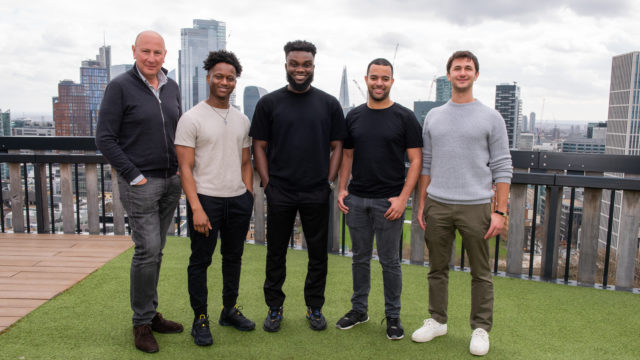A new investment from private equity firm Falfurrias Capital Partners has propped up independent full-service agency Brainlabs’ valuation to an estimated $320 million.
Brainlabs declined to confirm the investment amount. The estimated value is according to sources familiar with the matter who spoke with Adweek anonymously.
The agency’s been executing an aggressive expansion strategy, with plans to become the world’s largest independent agency. In March, it won Consumer Cellular’s $50 million retail media, paid search and paid shopping business. It’s also recently added clients Estée Lauder Companies, Adidas, WeTransfer, Formula 1 and Capital One to its roster. As its attracted these clients, it’s been speedily acquiring other shops that beef up its service capabilities. In 2022, it acquired influencer agency Fanbytes, conversion rate optimization agency User Conversion, Amazon agency Molzi, programmatic agency MediaNet, the mobile ad creative studio Consumer Acquisition and data firm Nabler.
It’s still pressing forward, committing to use its new investment capital to achieve international growth, particularly in markets across Europe, Asia Pacific and Latin America. Private equity firm Livingbridge, Brainlabs’ previous investor, has now exited. Since receiving its first investment from Livingbridge, Brainlabs grew by 800% and now employs approximately 900.
“We’ve come a long way since I started the agency in my parents’ attic, just over 10 years ago. From day one, this business has been built on the belief that high performance in media would require a data-driven, tech-enabled methodology, rooted in digital media,” Daniel Gilbert, Brainlabs global CEO, said in a statement.
Scaling quickly
Stephen Allan, now Brainlabs’ executive chairman, previously led WPP media agency MediaCom. At the time, it was the world’s largest.
Allan first met Gilbert years ago while in the global CEO role. “The reason I meet Dan some years ago is because I tried to buy the business,” Allan told Adweek. At the time, Gilbert declined to sell to WPP or another holding company, opting instead to raise money from investors. “Different agencies choose different paths,” Allan added.
There’s been significant change in terms of how large agencies are assembling. With consolidation rampant across the holding companies, individual agency brands are becoming scarcer amidst group-level brands like Dentsu Creative forming. All of this consolidation, counterintuitively, leads holding companies to hold fewer companies. This is prompting myriad questions about how, exactly, the industry should define a holding company: Must it be publicly traded, or is a holding company simply a company that acquires subsidiaries? “There’s been so much conversation around integrating marketing and media,” said Allan. “What you will have seen is holding companies cobbling together different agencies in their group, putting them under some kind of branding header. The reality is, those businesses are not integrated,” MediaCom’s former leader continued.


